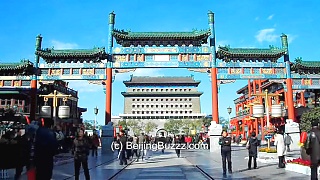
 Beautiful aerial tour of GuiZhou 大美贵州 …
Beautiful aerial tour of GuiZhou 大美贵州 …

Live more ...
 Beautiful aerial tour of GuiZhou 大美贵州 …
Beautiful aerial tour of GuiZhou 大美贵州 …

|
One missile - 16 people died, to silence truth.
Michael Hudson on how human rights have been privatized / commercialized (monetized) in the US ...
|

|
Including the Dragon's Backbone hike to Big Wave Bay.
A lovely film ...
A short bonus film - the view from Victoria Peak, by Francis So ...
|

|

|

|
In AnHui province.
|

|
Immediately south of TianAnMen Square ...
|

|
GuangDong province.
With Walk East ...
|